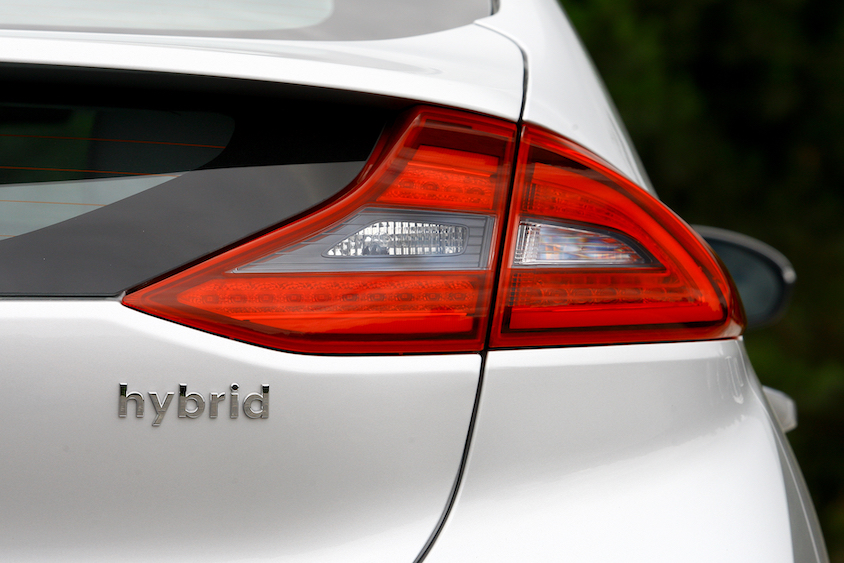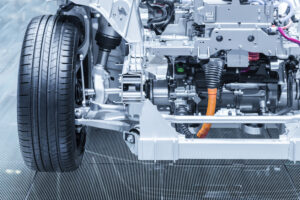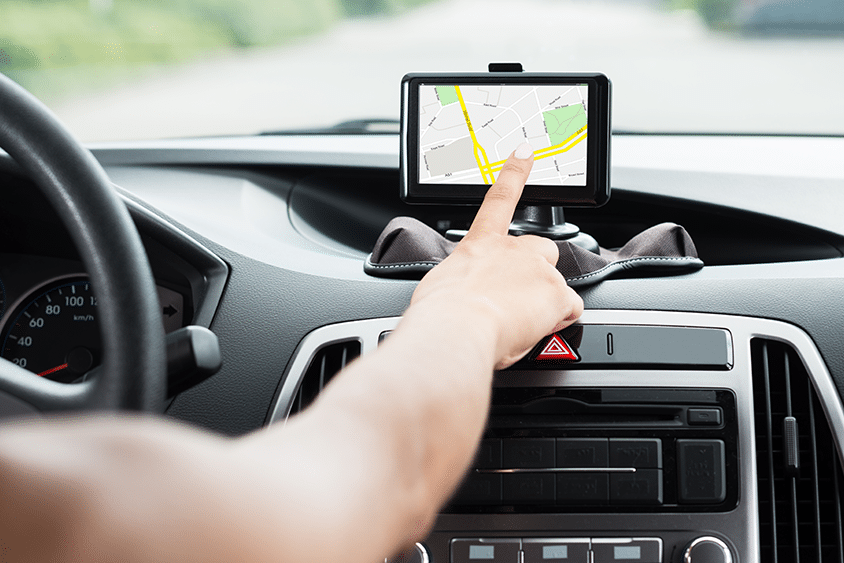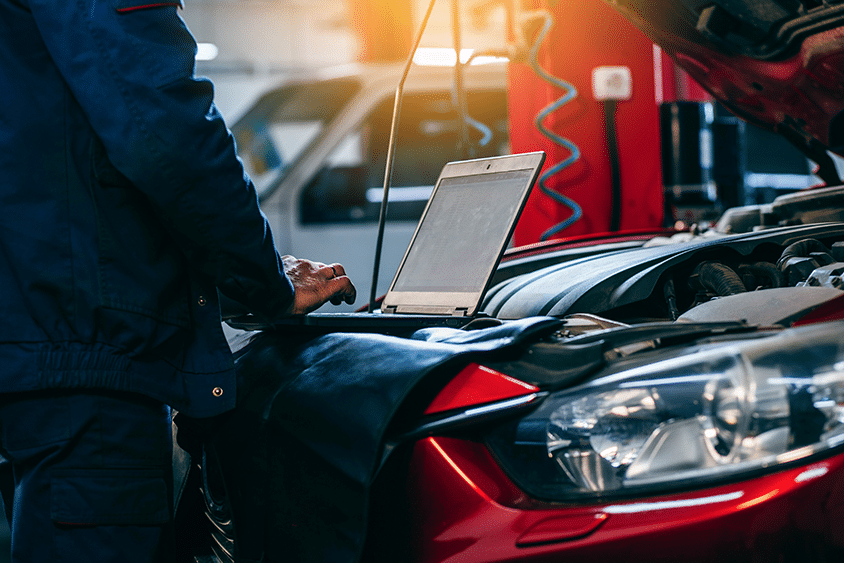Why Don’t We See Many Diesel Hybrid Cars On Our Roads?
Written by: Marion Hanson, Last updated:27th January 2025

Since hybrid vehicles arrived on our roads, motorists have wondered why they are always paired with a petrol-burning engine instead of a diesel engine.
After all, the idea makes sense. Electric motors are very efficient, and diesel engines give you better miles per gallon than petrol engines, so why not create a hybrid? Surely this would be the most efficient vehicle on the market!
However, upon further inspection, it doesn’t seem so simple.
What is a hybrid car?
If you’ve driven on a UK road in the last decade, you’ll have seen a hybrid vehicle. They have been around since the late 90s but weren’t too familiar. They are now becoming a popular solution to the country’s pollution problem.
Furthermore, their popularity will increase with the government’s announcement of the ban on the sale and production of ICE cars from 2030.
How does a diesel hybrid work?
A hybrid vehicle uses more than one means of propulsion. The most common example is a vehicle with an electric motor and a petrol engine. The electric motor is used at lower speeds, making it very efficient for driving in traffic when stopping and starting. The petrol engine takes over at around 15mph when the vehicle accelerates.
There are multiple types of these vehicles, such as a Parallel Hybrid, Range Extender or a Plug-in.
Hybrid cars Vs EVs
Many drivers find transitioning from traditional internal combustion engine (ICE) vehicles to fully electric vehicles (EVs) daunting. The prospect of entirely rethinking how you fuel your car, adjusting to new driving habits, and managing the range limitations of EVs can seem like too big a change all at once. Hybrid vehicles are an ideal middle ground.
See the difference between electric or hybrid cars for commercial fleets by clicking here.
Why aren’t there many diesel hybrids?
Most of the hybrids you’re likely to encounter use a petrol engine. Considering that diesel is more efficient, it’s worth investigating why they aren’t paired with an electric motor.
There are three main reasons why we don’t see diesel hybrids.
The cost of diesel hybrid cars
As you have probably seen at fuelling stations, diesel fuel tends to be more expensive than petrol. Additional hardware also makes diesel engines more costly to produce and maintain, often due to parts added to help them reduce emissions. A diesel engine costs around 15% more to manufacture than a petrol engine.
Similarly, electric motors are not cheap. Battery backups, high-tech electronics, and powerful motors drive up prices. This is especially true in current circumstances, with global part shortages driving up prices.
Therefore, combining these two engines would result in an incredibly pricey vehicle. Would the extra cost be worth it?
The complexity of diesel hybrid cars
Hybrids are more complex to manufacture, service, and maintain. These factors combined can make diesel hybrids harder to sell than conventional diesel vehicles.
Stop and start factors of a diesel hybrid
One way hybrids work to save fuel and lower emissions is by using the start/stop ignition and occasionally running in EV-only mode. Whereas, due to the way they are built, diesel engines are the cleanest and most efficient when running steady instead of cold starting.
Diesel hybrid torque
Another advantage of a petrol hybrid is how the two engines complement each other.
A petrol engine outputs the most power at higher speeds, while an electric vehicle delivers the most torque at lower speeds. This means that when the car is moving slowly, the electric motor drives it forward. When it speeds up, the petrol engine is designed to handle the higher speeds efficiently.
However, a diesel engine is also great at producing torque lower down. When paired with an electric motor, there is less efficiency. Both motors are fantastic at low speeds, but some serious engineering is needed to make them work at higher speeds.
A petrol engine and an electric motor are proven to complement each other. A diesel engine and an electric motor simply don’t match that!
Less need for diesel hybrids
There is simply less demand for a diesel vehicle to be hybridised.
Petrol engines can convert 25% of their fuel’s energy into kinetic energy, which moves the vehicle forward. Diesel, on the other hand, is more efficient overall. Some diesel engines can convert 10% more than this. This begs the question, why would we need to hybridise a diesel vehicle if it is already more efficient?
Adding an electric motor would not significantly improve the vehicle’s performance and efficiency. Although it would be more expensive, it would offer a minor improvement. Despite all the reasons listed above to avoid creating a hybridised diesel vehicle, a few are on the market.
The Mercedes E300de, the Peugeot 3008, and the Citroën DS5 are all diesel vehicles supported by an electric motor, though they are built differently.
Which is better, diesel hybrid or petrol hybrid?
The decision between a diesel hybrid and a petrol hybrid ultimately depends on your fleet habits, environmental priorities, and vehicle needs.
Diesel hybrids are a better option for fleet drivers who frequently cover long distances, particularly on highways, as diesel engines are more fuel-efficient and provide superior torque for towing or carrying heavy loads. They offer better fuel economy over long trips and can be an ideal choice for those willing to invest in a higher upfront cost for long-term savings on fuel.
On the other hand, petrol hybrids are well-suited for urban environments, where the stop-and-go nature of driving benefits from the smooth, quiet operation of a petrol engine paired with an electric motor. Petrol hybrids are generally more silent, affordable, and require less maintenance, making them a good choice for those prioritising lower initial costs and a refined driving experience. Looking to make your fleet vehicle servicing simpler? Check out this article.
Could your fleet be using hybrid vehicles?
Moving away from internal combustion engine vehicles is an excellent first step toward helping the UK reach its climate goals. However, switching to electric cars can be daunting, as they require a whole new set of skills to manage.
A hybrid vehicle bridges the gap between electric and ICE cars. You’d still refuel the vehicle similarly, but you’d be starting your journey towards net zero.
As the transportation industry continues to evolve, keeping an eye on your costs is essential. Keeping your fuel costs low is especially necessary to monitor expenses. Keeping important, given rising prices.
Discover some other important company car considerations.
Fuel cards for your hybrid fleet cars
Contact Fuel Card Services today. One of our branded fuel cards can save you up to 10p per litre on fuel, and our fleet management services offer other ways to save time and money.
back



